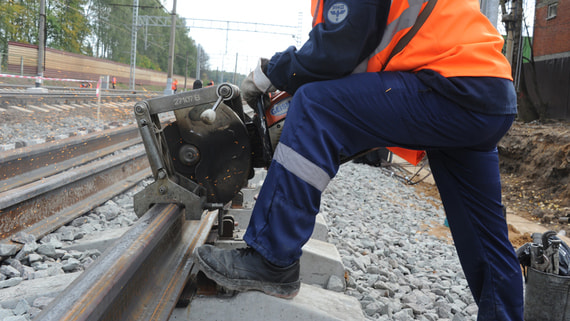The Ministry of Transport wants to launch the Moscow-Petersburg high-speed line in 2028
[ad_1]

The construction of a high-speed railway line (HSR) between Moscow and St. Petersburg will be completed approximately in 2028, Deputy Minister of Transport of the Russian Federation Valentin Ivanov said on August 24. He noted that the construction “in fact, is already underway”: railway exits of the high-speed lines from Moscow are being created.
The cost of construction, according to Ivanov, could be about 1.7 trillion rubles. According to the deputy minister, the price parameters of the project are planned to be updated in the near future, since the key rate of the Central Bank has changed, and this “seriously affects the financial model.” He noted that he is ready to take part in the financing of the SCM Sberbank.
Sinara Transport Machines (STM) is planning to supply rolling stock for the Moscow-Petersburg high-speed line. As Anton Zubikhin, Deputy General Director of the Sinara Group, announced on August 24, the company expects to produce 50 high-speed electric trains for high-speed lines from 2028 to 2032. Previously, the company said that they will be able to reach speeds of up to 400 km / h. According to Zubikhin, the company is currently selecting a site in Moscow for the construction of an enterprise for the production of such trains. “”In accordance with the parameters of the project, 50 eight-car electric trains should be delivered from 2028 to 2032 in order to launch. But the volume of this batch can be up to 75 trains,” he said (quoted by TASS). Zubikhin did not name the amount of investment in the new plant, but specified that the creation of the enterprise would pay off when ordering 50 electric trains.
Now in Russia there are no operating high-speed lines. Since 2009, the construction of a high-speed line from Moscow to Kazan with a possible extension to Yekaterinburg has been discussed. The project was planned to be implemented on the basis of a public-private partnership (PPP), but construction never began.
In 2019, Russian President Vladimir Putin instructed to design a high-speed line from Moscow to St. Petersburg. Then Russian Railways expected to launch this highway by 2026. By the end of 2021, the creation of a high-speed highway was entered into the passport of the state program “Development of the transport system”. The document refers to the construction of the Moscow-Petersburg highway with a length of 630 km in 2027.
It was assumed that about 500 billion rubles would be allocated for these purposes. from the National Wealth Fund (NWF) with a total project cost of 1.39 trillion rubles. But already in the spring of 2022, after the start of the NWO in Ukraine, the Russian government decided to refuse to finance the high-speed railway at the expense of the NWF (Vedomosti wrote about this on March 24). The HSR financial model, which was viable “at least on paper” in the pre-sanction period, has actually completely lost its relevance due to an increase in the cost of imports, a decrease in effective demand, a deterioration in transportation forecasts and a decrease in technological capabilities due to sanctions restrictions on imports, the interlocutors explained Vedomosti.
But in mid-August 2023, when opening the third branch of the Moscow Central Diameter (MCD-3), Putin unexpectedly announced that the moment had come for the implementation of the high-speed rail project from Moscow to St. Petersburg. He noted that thanks to the new highway, the speed of movement will increase and travel time will be reduced – from 4 hours 5 minutes to 2 hours 15 minutes. Putin also promised to discuss the construction of the high-speed line from Moscow to Minsk with Belarusian President Alexander Lukashenko.
Mikhail Burmistrov, CEO of Infoline-Analytics, calls the plans of the Ministry of Transport “very ambitious.” He noted that the pace of construction in Russia is now generally quite high, and the example of the M12 highway showed that it is possible to create fairly large infrastructure facilities in a short time. “But in terms of high-speed rail, it’s more likely [сроком реализации такого проекта] seems to be 2029-2030, because in 2024 there will be the strongest state budget deficit. In addition, there will be a labor shortage in the country and, objectively, there will be no one to build high-speed railways – there will be neither money nor resources,” Burmistrov believes. According to the expert, given the high pace of construction and the absence of problems with financing, one can count on the launch of the high-speed railway closer to the end of 2029.
[ad_2]
Source link





